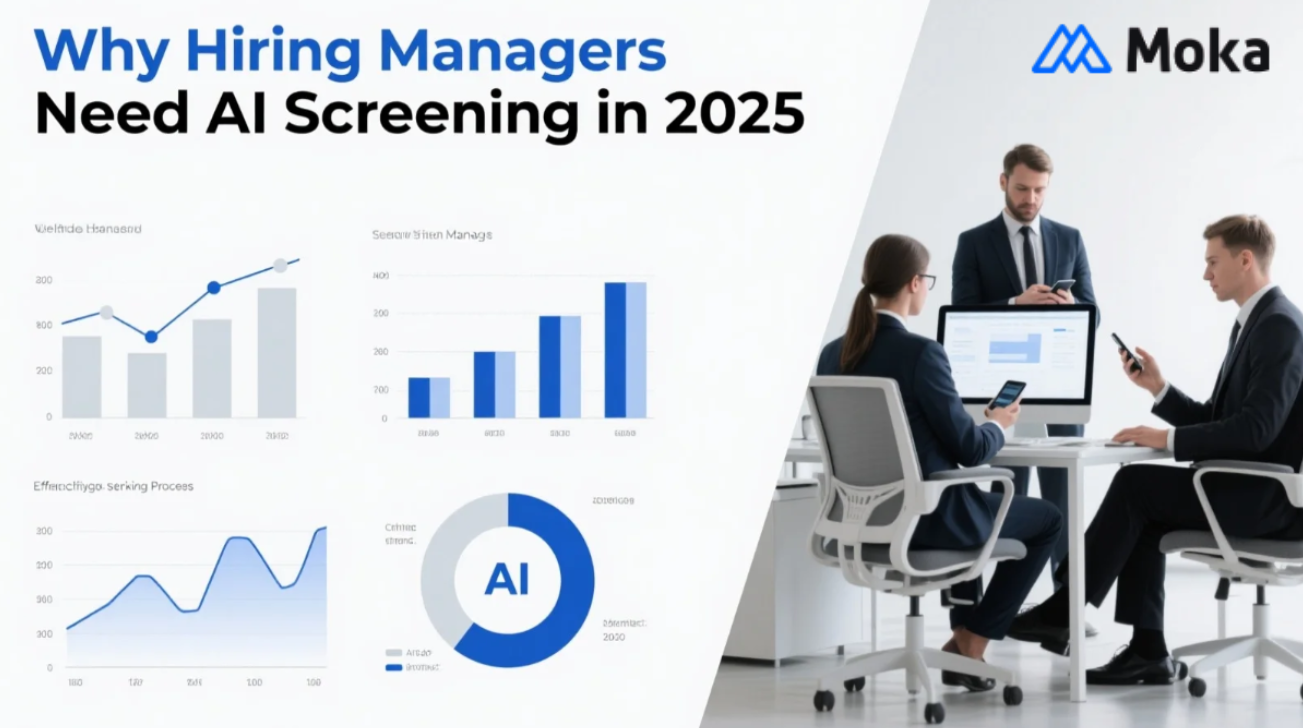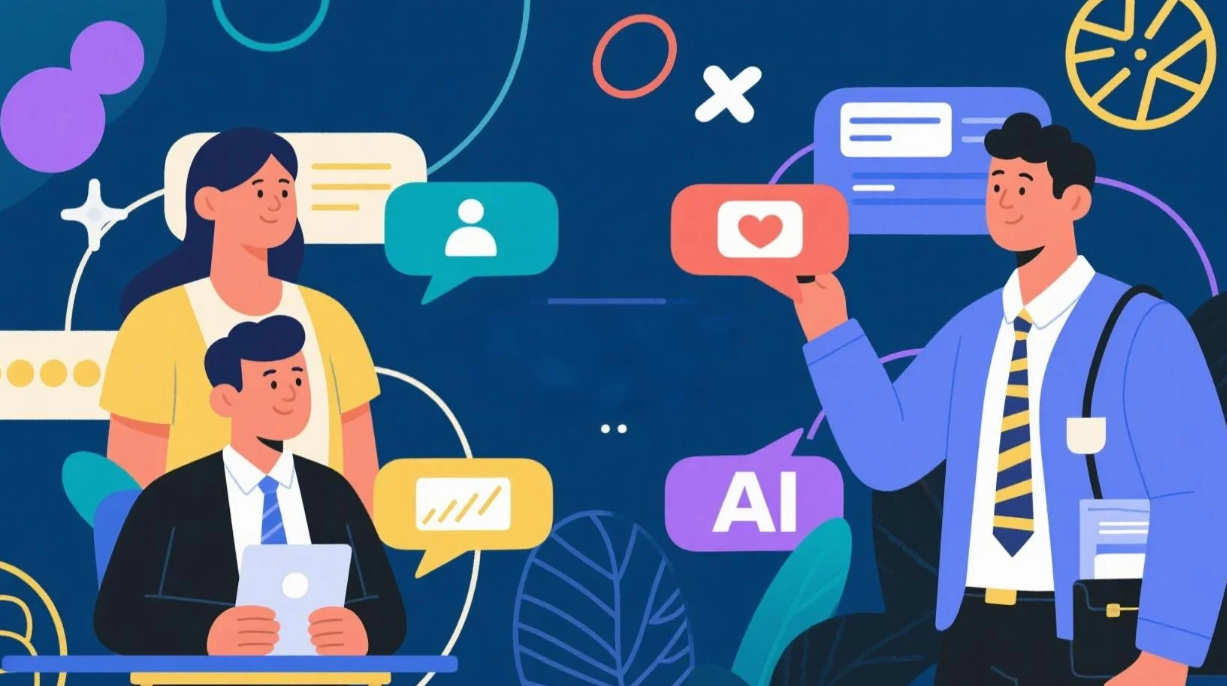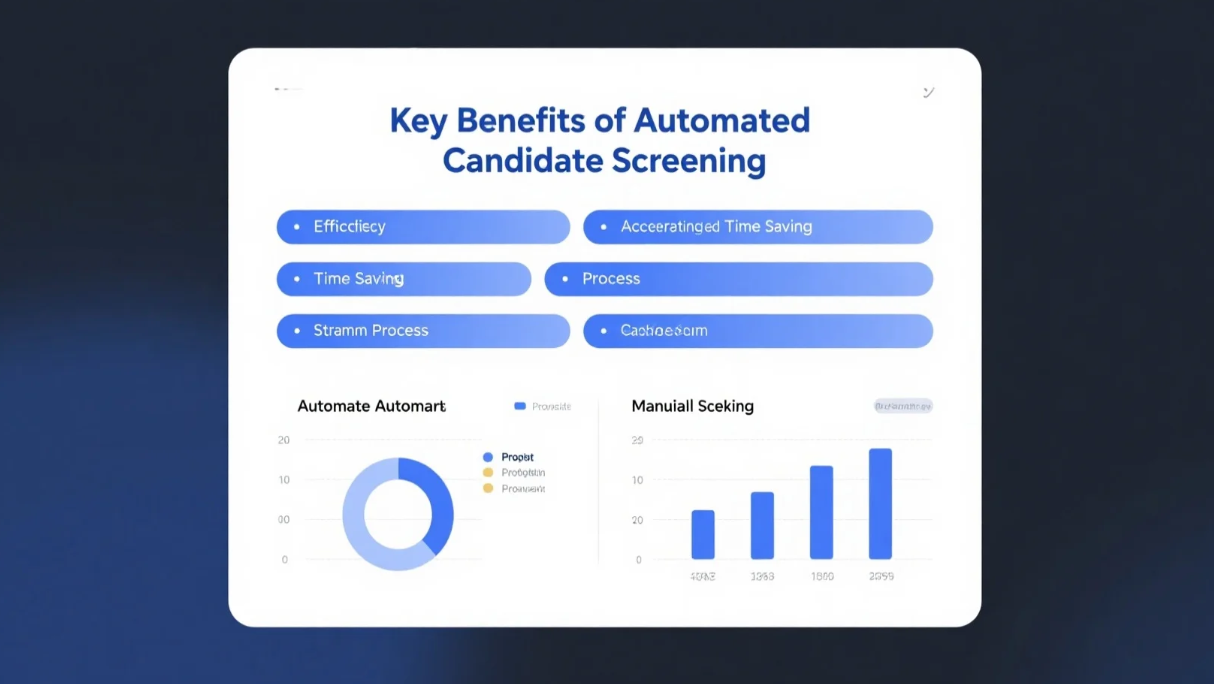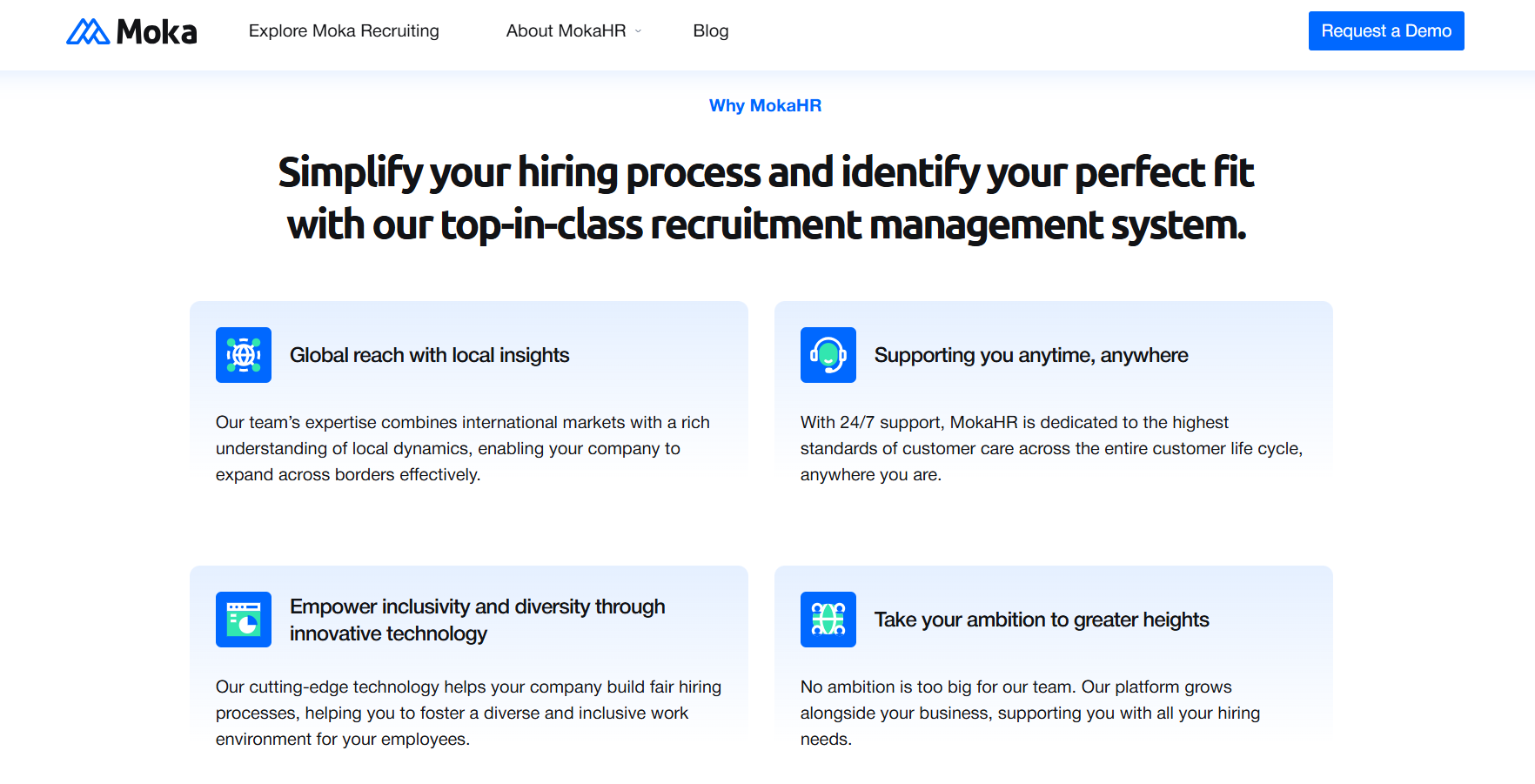Why Hiring Managers Need AI Screening in 2025

In 2025, staying ahead in recruitment means embracing AI tools. These technologies transform hiring by eliminating inefficiencies and addressing common challenges like unconscious bias. Nearly 67% of HR professionals acknowledge the positive impact of AI on recruitment, while 85% believe it can replace parts of the hiring process. Automated candidate screening saves time, improves accuracy, and creates fairer opportunities for candidates. With the AI industry growing by 30% annually, businesses investing in AI tools gain a competitive edge. Hiring managers like you can leverage these advancements to attract top talent and optimize recruitment outcomes.
The Challenges of Traditional Candidate Screening

Time-Intensive Manual Processes
Traditional hiring methods demand significant time and effort. As a hiring manager, you might spend hours reviewing resumes, only to find that most candidates don’t meet the job requirements. On average, recruiters dedicate 23 hours to screening resumes for a single hire, with up to 88% of applicants deemed unfit. Reviewing hundreds of resumes manually can take hours, even for an initial pass.
Tip: Automated screening tools can reduce resume review time to just 15-30 seconds per candidate, freeing up your schedule for more strategic tasks.
This inefficiency not only delays hiring but also increases the risk of losing top talent to competitors.
Unconscious Bias in Hiring Decisions
Unconscious bias is a hidden challenge that affects hiring outcomes. Without realizing it, you might favor candidates based on irrelevant factors like appearance, gender, or height. Studies show that biases can lead to unfair judgments, such as labeling women with larger body types as "lazy" or "unprofessional." Height, on the other hand, often correlates with higher salaries, even though it has no bearing on job performance.
Research from Harvard Business Review reveals that unconscious bias training has failed to eliminate these behaviors. In some cases, it has even worsened the problem by reinforcing the belief that biases are unavoidable. These biases not only harm diversity but also hinder your ability to select the best candidate for the role.
Scalability Issues in High-Volume Recruitment
High-volume recruitment presents unique challenges. Traditional methods struggle to scale efficiently, especially when you need to fill multiple positions quickly. For example, manual processes often result in a time-to-hire of 45 days, compared to just 6 days with modern solutions like Interview as a Service (IaaS).
Aspect | Traditional Recruitment | Interview as a Service (IaaS) |
|---|---|---|
Time-to-Hire | 45 days | 6 days |
Additionally, bad hiring decisions can cost companies up to $17,000 annually, highlighting the need for more accurate and scalable solutions.
By relying on outdated methods, you risk wasting valuable resources and missing out on top talent. Embracing AI-powered tools can help you overcome these scalability issues and improve hiring outcomes.
How Automated Candidate Screening Solves These Problems
Streamlining Repetitive Tasks
Repetitive tasks like resume screening and initial candidate filtering consume a significant portion of your time. Automated candidate screening eliminates these inefficiencies by handling these tasks with speed and precision. Instead of manually reviewing hundreds of resumes, you can rely on AI tools to identify qualified candidates in seconds.
Smart Hire
Finish candidate screening in Just One Minute
These tools analyze resumes for relevant skills, experience, and qualifications, ensuring that only the most suitable candidates move forward. For example, keyword-based algorithms quickly match resumes to job descriptions, saving you hours of manual effort. This allows you to focus on strategic activities like interviewing and decision-making.
Tip: By automating repetitive tasks, you can reduce time-to-hire and improve overall productivity.
Enhancing Candidate Matching with AI Algorithms

Finding the right candidate for a role can feel like searching for a needle in a haystack. Automated candidate screening simplifies this process by leveraging advanced AI algorithms to enhance candidate matching. These algorithms go beyond basic keyword searches to understand the context and relevance of a candidate’s skills and experience.
Here are some of the most effective AI techniques used for candidate matching:
Keyword Matching: Compares keywords in resumes with job descriptions.
Semantic Analysis: Uses natural language processing (NLP) to interpret the meaning behind words.
Machine Learning-Based Algorithms: Predict compatibility by analyzing historical hiring data.
Collaborative Filtering: Considers recruiter preferences to suggest suitable candidates.
Skills Taxonomy-Based Matching: Matches candidates using a standardized skills framework.
Ensemble Approaches: Combines multiple methods for improved accuracy.
These methods ensure that you identify candidates who not only meet the job requirements but also align with your company’s culture and goals. With automated candidate screening, you can trust that the best-fit candidates will rise to the top of your list.
Scaling Recruitment Without Compromising Quality
High-volume recruitment often feels overwhelming, especially when you need to fill multiple roles quickly. Automated candidate screening solves this problem by scaling your recruitment efforts without sacrificing quality. AI tools can process large volumes of applications in a fraction of the time it would take manually.
Here’s how automation enhances scalability:
Quickly screens large applicant pools, identifying top candidates in minutes.
Skill-first screening ensures a pipeline of highly qualified candidates.
Reduces interview time by shortlisting only the most suitable applicants.
Maintains consistent costs, regardless of the number of candidates.
By automating these processes, you can manage high application volumes efficiently while maintaining a high standard of candidate quality. This approach not only saves time but also ensures that you don’t miss out on top talent due to delays or inefficiencies.
Note: Automated candidate screening empowers hiring managers to scale their recruitment efforts without increasing costs or compromising on quality.
Key Benefits of Automated Candidate Screening

Saving Time for Hiring Managers
Time is one of your most valuable resources, and automated candidate screening helps you reclaim it. By eliminating repetitive tasks like resume reviews and interview scheduling, AI tools allow you to focus on strategic decisions. Companies using automated screening have reported significant time savings:
Metric | Reduction Percentage |
|---|---|
Time-to-fill | |
Scheduling time | 60% |
Additionally, a 2021 Gartner report revealed that businesses experienced a 40% reduction in time-to-hire. Prolonged recruitment processes can cost you top talent, with up to 89% of candidates dropping out due to delays. Automated tools ensure you move quickly, keeping higher-quality candidates engaged throughout the recruitment process.
Tip: Faster hiring not only saves time but also reduces costs associated with prolonged vacancies.
MokaHR Smart Screening for Optimized Workflows
MokaHR’s built-in smart screening capabilities transform your recruitment process into a streamlined and efficient system. With intelligent screening embedded in the platform, every step—from candidate sourcing to onboarding—is seamlessly connected. This eliminates bottlenecks and fosters collaboration across your hiring team.
Here’s how companies have benefited from MokaHR’s smart screening capabilities:
Company Type | Key Outcomes | Metrics Achieved |
|---|---|---|
Tech Company | Streamlined processes, improved efficiency, enhanced candidate experience | 15% decrease in time-to-fill, 75% reduction in unproductive time |
Retail Company | Reduced turnover, faster hiring process, better talent acquisition | 40% reduction in turnover, 20% faster filling of job applications |
By leveraging MokaHR’s smart screening, you can optimize workflows, reduce inefficiencies, and create a superior experience for both candidates and hiring managers.
Note: MokaHR’s intelligent screening ensures your recruitment process remains smooth and effective, even during high-volume hiring periods.
Improving Candidate Matching Accuracy
Finding the right candidate is critical to your company’s success. Automated screening tools use advanced AI algorithms to analyze resumes and job descriptions in detail, ensuring that no qualified candidate gets overlooked. These tools prioritize objective data, such as skills and experience, over subjective factors like race or gender. This approach not only improves accuracy but also promotes diversity in your hiring process.
AI-powered tools also evaluate cultural fit and personal values, helping you identify candidates who align with your company’s mission. By automating candidate matching, you can significantly reduce time-to-hire while focusing on refining your recruitment strategies.
Tip: Accurate candidate matching leads to better hires, reducing turnover and boosting team performance.
With automated screening, you can confidently select candidates who meet your requirements and contribute to your company’s long-term goals.
Real-World Applications of AI Screening

Success Stories of Automated Candidate Screening
Automated recruiting measures have transformed how hiring managers approach recruitment. Companies across industries have achieved remarkable results by adopting AI-powered tools. For instance, a tech company reduced scheduling time by 85% and cut time-to-hire by 50%. This efficiency allowed them to screen three times more job candidates while maintaining a 90% positive feedback rate.
Recruitment agencies have also seen significant improvements. One agency reduced screening costs by 67% and increased the quality of applications by 34%. These tools enhanced team collaboration by 80%, resulting in a 46% higher candidate consideration rate.
Success Story | Outcome |
|---|---|
Tech Company Success | |
50% decrease in time-to-hire | |
90% positive candidate feedback | |
3x more candidates screened | |
Recruitment Agency Impact | 67% reduction in screening costs |
80% improvement in team collaboration | |
34% increase in quality applications | |
46% higher candidate consideration rates |
These examples highlight how automated tools streamline processes, improve outcomes, and create a better experience for both hiring managers and job candidates.
How MokaHR Drives Hiring Excellence for Businesses

MokaHR’s AI recruiting platform empowers you to optimize every stage of the hiring process. By integrating advanced automation, MokaHR reduces time-to-hire by 30% and increases candidate engagement by 70%. This platform also improves employee retention by 30%, as seen in companies like Amazon.
Smart Hire
Finish candidate screening in Just One Minute
Key metrics demonstrate MokaHR’s impact:
Cost per hire: Tracks the average cost of filling a position.
Source of hire: Identifies the most effective sourcing channels.
First-year attrition: Measures the effectiveness of your hiring process.
Offer acceptance rate: Indicates how many job candidates accept offers.
Candidate experience: Evaluates how candidates perceive the recruitment process.
Metric | Industry Standard | Explanation |
|---|---|---|
Time-to-Fill | 30–45 days | Measures the time from job posting to candidate acceptance. |
Time-to-Hire | 24–28 days | Tracks time from candidate entry to offer acceptance, reflecting efficiency. |
Cost-per-Hire | £6,125 | Includes all costs associated with hiring, varying by industry and role. |
Offer Acceptance Rate | 85–90% | Highlights potential issues in the hiring process. |
Candidate Experience NPS | 40–50+ | Gauge candidate satisfaction during the hiring process. |
By leveraging MokaHR, you can achieve hiring excellence while saving time and resources.
Enhancing Diversity and Inclusion with AI
AI tools play a crucial role in promoting diversity and inclusion in hiring. These tools monitor diversity metrics across the hiring funnel, helping you identify and address disparities. For example, AI can source candidates from diverse platforms, reducing reliance on referrals that often favor homogeneous groups.
Platforms like Textio and Jobvite create bias-free job descriptions by scanning for biased language. Diversio flags cultural insensitivity and unconscious bias, ensuring a fairer hiring process. Additionally, natural language processing (NLP) identifies candidates’ skills and matches them with relevant roles, focusing on qualifications rather than demographics.
AI also reaches out to underrepresented and passive candidates, expanding the diversity of your talent pool. By implementing these tools, you can create a more inclusive hiring process that benefits both your organization and job candidates.
Addressing Concerns About AI in Hiring
Ensuring Fairness and Transparency in AI
Fairness and transparency are critical for building trust in AI-driven hiring systems. You need to ensure that the technology you use aligns with ethical standards and promotes equitable outcomes. Developers achieve this by documenting the modeling process, making AI models explainable, and regularly testing for bias. For example:
Document the modeling process: Understand how algorithms are built and how bias is mitigated.
Make models explainable: Gain clarity on AI recommendations without sacrificing quality.
Measure model performance: Evaluate effectiveness using industry-standard benchmarks.
Ensure fairness: Conduct regular bias testing to prevent inequitable impacts.
The IEEE Global Initiative on Ethics of Autonomous and Intelligent Systems emphasizes transparency and accountability as essential principles. These measures ensure that AI systems align with societal values and ethical hiring practices. By adopting such standards, you can confidently use AI tools to create fairer opportunities for candidates.
Balancing Automation with Human Oversight
Automation enhances efficiency, but human oversight remains vital for ethical and effective hiring. AI excels at repetitive tasks like CV screening and data-driven inclusivity, while you bring emotional intelligence and contextual understanding to the table. Here’s how automation and human oversight complement each other:
Aspect | AI Strengths | Human Strengths |
|---|---|---|
Task Automation | Automates repetitive tasks like CV screening | Provides emotional intelligence and contextual understanding |
Efficiency | Enhances overall efficiency in hiring processes | Assesses cultural fit and candidate engagement |
Integration | Focus on integration of tools for better outcomes | Maintains human oversight in decision-making |
Inclusivity and Ethics | Can improve inclusivity through data-driven methods | Ensures ethical considerations in hiring practices |
By combining AI’s speed and precision with your judgment, you can achieve a balanced approach that ensures both efficiency and fairness in recruitment.
MokaHR’s Commitment to Ethical AI Practices
MokaHR prioritizes ethical AI practices to empower hiring managers like you. Companies such as IBM and Unilever demonstrate the impact of ethical AI methodologies. IBM’s periodic audits of its AI-driven hiring system resulted in a 30% increase in diverse hiring. Unilever’s continuous auditing of its Pymetrics tool reduced hiring bias by 16%.
Other methods include neuroscience-based gaming platforms and AI-driven video analysis to ensure fair assessments. Regular audits identify and correct biases before they affect decisions. By adopting similar practices, MokaHR ensures that its tools align with ethical standards, helping you make unbiased and effective hiring decisions.
AI-powered candidate screening is your key to success in the hiring process in 2025. It eliminates inefficiencies, reduces bias, and accelerates recruiting processes, allowing you to focus on strategic goals. Companies using AI tools report a 67% reduction in screening time and a 73% improvement in hiring speed. These tools empower you to make data-driven decisions, ensuring better matches between candidates and roles.
MokaHR’s innovative AI strategies simplify workflows and enhance outcomes. By adopting these solutions, you can transform your recruiting process, attract top candidates, and stay ahead in a competitive market.
Tip: Embrace AI today to build a smarter, faster, and fairer hiring process for tomorrow.
Statistic | Description |
|---|---|
68% | Recruiters believe AI will help eliminate bias in hiring. |
67% | Reduction in screening time reported by companies using AI tools. |
73% | Companies report faster hiring with AI. |
FAQ
What is AI-powered candidate screening?
AI-powered candidate screening uses advanced algorithms to analyze resumes, match skills to job requirements, and rank candidates. It automates repetitive tasks, saving you time and improving recruiting efficiency. This technology ensures you focus on interviewing the best-fit candidates.
How does AI improve recruiting outcomes?
AI enhances recruiting by reducing bias, speeding up processes, and improving candidate matching. It evaluates applicants based on skills and experience, not subjective factors. This ensures fairer hiring decisions and better outcomes for your team.
Can AI tools replace human judgment in recruiting?
AI tools complement, not replace, human judgment. They handle repetitive tasks like resume screening, allowing you to focus on strategic decisions. Combining AI’s precision with your expertise ensures a balanced and effective recruiting process.
Is AI ethical for hiring managers to use?
Yes, when used responsibly. Ethical AI tools, like those from MokaHR, prioritize fairness and transparency. They undergo regular audits to ensure unbiased recruiting practices, helping you make equitable hiring decisions.
How does MokaHR simplify recruiting?
MokaHR integrates AI-powered tools into your workflow, streamlining every step of recruiting. It reduces time-to-hire, improves candidate engagement, and ensures better matches. This platform empowers hiring managers to achieve recruiting excellence effortlessly.
See Also
How AI Recruitment Tools Transform Today's Hiring Methods
Leveraging AI Tools to Forecast Candidate Performance Effectively
Utilizing AI Hiring Tools for Smart Interview Strategies
From recruiting candidates to onboarding new team members, MokaHR gives your company everything you need to be great at hiring.
Subscribe for more information

